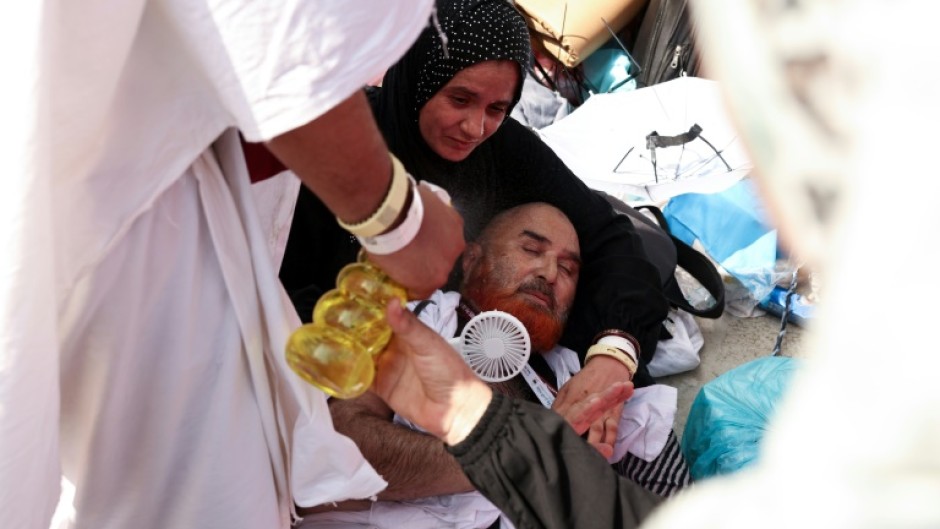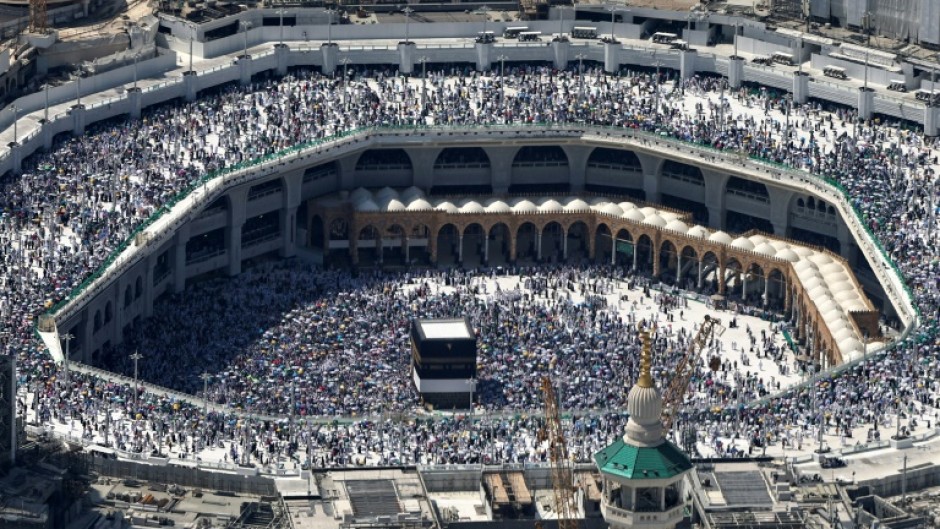Saudi Arabia on Monday warned of a temperature spike in Mecca as Muslim pilgrims wrapped up the hajj in searing conditions, with more than a dozen heat-related deaths confirmed.
One of the world's largest religious gatherings unfolded during the oven-like Saudi summer again this year, and authorities recorded more than 2,700 cases of "heat exhaustion" on Sunday alone, the Saudi health ministry said.
On Monday, according to the Saudi weather service, temperatures reached 51.8 degrees Celsius at Mecca's Grand Mosque, where pilgrims were circling the Kaaba, the large black cubic structure towards which all Muslims pray.
In nearby Mina, where a spokesman for the national meteorology service said the temperature was 46C, other pilgrims were throwing stones at three concrete walls -- a ritual known as "stoning the devil" that is the last major step of the hajj, while struggling under the burning sun.
Jordan's foreign ministry said on Sunday that 14 Jordanian pilgrims had died "after suffering sun stroke due to the extreme heat wave", and that 17 others were "missing".
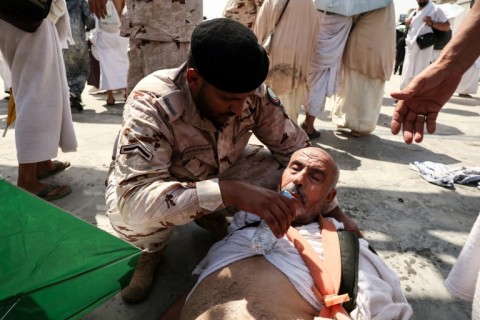
Iran reported the deaths of five pilgrims but did not specify the cause, while Senegal's foreign ministry said that three others had died.
An Indonesian health ministry official, currently in Saudi Arabia, said 136 Indonesian pilgrims had died during the hajj including at least three of heat stroke.
"The holy sites today record the highest temperatures since the beginning of hajj... that may reach 49 degrees Celsius, and we advise the guests of God not to be exposed to the sun," the health ministry said, according to state-affiliated Al-Ekhbariya channel.
The Saudi health ministry announced in a statement 2,764 cases of heat exhaustion on Sunday due to sun exposure and "non-compliance with guidelines", which include taking shelter from the sun during the afternoon.
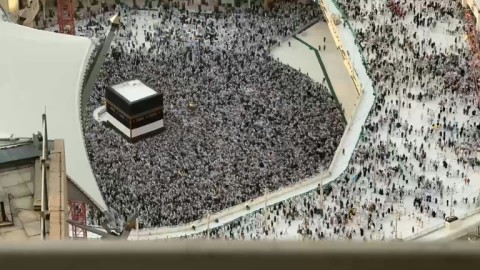
"Our health guidelines for the coming days are clear and easy: carry an umbrella, drink water regularly, and avoid exposure to the sun."
- 'Really hard day' -
The hajj is increasingly affected by climate change, according to a Saudi study published last month that said regional temperatures were rising 0.4C each decade.
Pilgrims in Mina on Monday poured bottles of water over their heads as authorities handed out cold drinks and fast-melting chocolate ice cream.
Azza Hamid Brahim, a 61-year-old pilgrim from Egypt, described seeing motionless bodies on the roadside as she made her way to and from the three concrete walls.
"The ambulances didn't know which way to turn. It looked like Judgement Day, the end of time," she said.
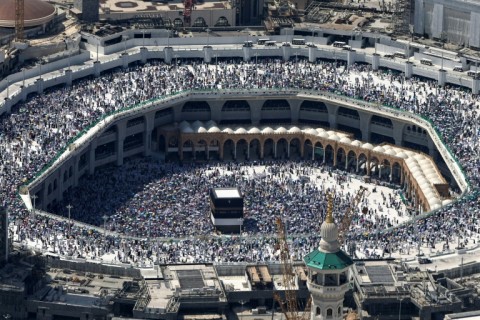
"It was a really hard day. We said to ourselves: 'That's it, we're going to die' because of the heatwave."
Arzu Farhaj of Pakistan said she struggled to find help for a woman who was lying on the roadside.
The woman looked to be without anyone accompanying her, "and the people were passing by," Farhaj said, adding she was unable to get security staff to call an ambulance for her.
The hajj is one of the five pillars of Islam and all Muslims with the means must perform it at least once.
It occurs according to the Islamic lunar calendar, shifting forward each year in the Gregorian calendar. This year's hajj takes place between June 14-19.
Hajj this year drew around 1.8 million pilgrims, 1.6 million of them from abroad, according to Saudi authorities.
Hosting the hajj is a source of prestige for the Saudi royal family, and King Salman's title includes "Custodian of the Two Holy Mosques" in the cities of Mecca and Medina.
Crown Prince Mohammed bin Salman, the de facto ruler, said on Sunday that Saudi officials had committed "to provide everything that will serve those who visit the Two Holy Mosques and help them perform their worship in security and reassurance".
The health ministry said it would "closely follow cases of heat exhaustion" and ensure pilgrims "can complete their hajj journey in full health".
By Dounia Mahieddine

